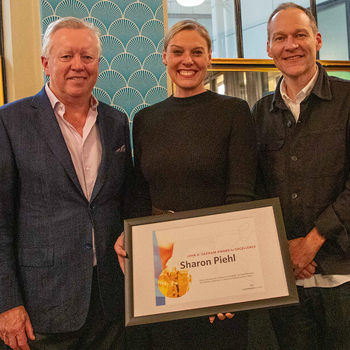Focusing on the action behind the promise and those who will ultimately be signing on your bottom line.
by Annette du Plessis, Associate Director, FleishmanHillard South Africa.

With lockdown as South Africa’s 2020 Word of the Year, the realities are undeniable[1].
There is no argument that the pandemic has changed the way we live and has opened up a whole new world. But beyond working from the comfort of our homes, it’s also led business into unnerving uncertainty.
This has seen two extremes play out: those that want to be heard and seen to be relevant by jumping into evolving conversations and those catapulted into inaction out of fear of saying or doing the wrong thing.
The truth is, we are not on mute.
Consumers, investors and employees are listening to our every word, and picking up on each deafening silence.
More than ever, to renew our ‘license’ to operate in 2021 and beyond, brands need to step up as active citizens for good in our communities and society at large. Which is why silence could be as damaging to business sustainability as lipservice.
Focusing on the action behind the promise
Gone are the days where ethics-washing, green-washing, rainbow-washing or anything short of a legitimate intent with tangible action and impact will be supported or tolerated by the swelling voices and purchasing power of our stakeholders.
62% of global consumers report that they will look at how an organisation respond to issues of racial or gender inequality when considering whether to support the brand[2], which highlights the growing risk of being silent or inactive.
The next normal calls to look beyond so-called corporate responsibility as a tick-box exercise. The new world order requires a renewed purpose behind business, which is to address shared challenges, generate long-term value for all stakeholders, and ultimately create shared prosperity and sustainability for both business and society[3].
Starting now, business and brands as citizens of this planet that do not place this purpose at its core, will become obsolete.
This doesn’t mean that brands need to be everything to everyone, but rather need to align their operations to the universal interest of their stakeholder and shareholders. They need to consider how they craft policies, how they innovate and what they offer beyond their products and services to support the underlying shifts in human needs and behaviours, in order to earn their voices and ultimately their ‘license’ to operate.
Listen to hear how our stakeholder expectations have changed
In this overhauled world, people are looking for meaning and connection and will prioritise business and brands that deliver on this need.
58% of global consumers expect companies to share the burden of societal issues with employees and customers so that no one group suffers more than the other. There’s also a call for companies to work with each other and governments to keep people safe and help all people prosper2.
Stakeholders are increasingly supporting business that mirror their own values and prioritise advancing social injustices and preserving the resources of our collective future. This in turn creates a need for values-led conversation between brands and consumers, investors and employees.
Futureproofed organisations will meet their stakeholders where they are by rising to their expectations and purpose4.
This means that brands need to relook targeting strategies to really understand the essence that drives stakeholders and how they can fulfil those expecations. In other words, business can no longer consider stakeholders’ relevance in relation to their wide-net fit into a broadly defined demographic, but will need to consider their audiences based on their values and passions.
Communicating and crafting offerings by circumstance and mindset, not demographic, will be core to helping your brand re-emerge with resilience.[4].
To transition into the next normal, brands must show up interesting and interested – listen to all stakeholders’ expectations, find how their brand purpose slots into these needs and be true to it. Because there is no business of the future without this in place.
[1] Lockdown-declared-sa-word-year-2020
[2] COVID-19-mindset-the-collision-of-issues
[3] Redefining-the-purpose-of-a-corporation-to-promote-an-economy-that-serves-all-americans
Find Out More
-
Digital Insights Bulletin - October 2024
October 31, 2024
-
Sharon Piehl Wins 32nd Annual John D. Graham Award for Excellence
October 25, 2024
-
Digital Insights Bulletin - September 2024
September 30, 2024


